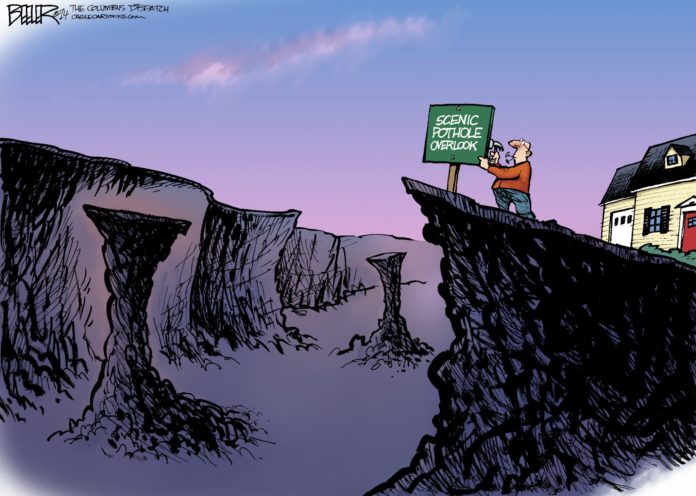BY DAVID PERRYMAN
 Sir Isaac Newton’s Third Law of Motion is that for every action there is an equal and opposite reaction. While Newton was addressing physics, it is difficult to find any action that we take individually or collectively as a society that does not produce some side effect.
Sir Isaac Newton’s Third Law of Motion is that for every action there is an equal and opposite reaction. While Newton was addressing physics, it is difficult to find any action that we take individually or collectively as a society that does not produce some side effect.
For instance, Ozzie Zehner, author of Green Illusions, wrote a white paper in 2012 on the unintended consequences of green technologies. Zehner outlined how massive amounts of corn used in biofuels caused food shortages and prices to spike in other parts of the world. His paper also illustrated how the manufacture of solar cells may increase health risks to the people who assembled them and that the industry is a leader in the production of greenhouse gases.
Another Zehner example is that organic farmers reduce environmental harms stemming from pesticides and fertilizers; however, since weed control requires more tilling, petroleum use would increase. Nobel Peace Prize winner Norman Borlaug has argued that to replace world food demand with 100 organic foods would require three times the amount of land currently in cultivation and consequently endanger rain forests.
While Zehner does not argue against green technology in the eight or nine examples that he gives, he does show that we should approach the issue with our eyes open.
One cause and effect issue that is directly affecting Oklahoma and Oklahomans relates to the potholes in our state. Because Oklahoma and the other 49 states have a fuel tax that is a flat number of cents per gallon of gasoline, as vehicles become more efficient, fuel tax revenue decreases and thereby decreases the amount of money available for road construction and road repair.
The current system of fuel taxes was first adopted in Oregon in 1919 and within 10 years all 48 states had enacted gas taxes to fund road and highway infrastructure. In 1932 the federal government followed the lead and ultimately allowed President Eisenhower’s 1956 Federal-Aid Highway Act to build the new interstate system.
Today, the federal government taxes gasoline at 18.4 cents per gallon and Oklahoma collects the fifth lowest state rate – 17 cents per gallon. Combined, the local, state and federal tax in Oklahoma is 35.4 cents per gallon, lower than all states except Alaska, Wyoming, New Jersey and South Carolina.
Federal gas tax revenue has fallen from about 47 billion to about 32 billion over the past 10 years, according to the Pew Analysis of Federal Highway Data adjusted for inflation. This equates to nearly one-third less federal funding for highways.
With Americans driving less and operating more fuel-efficient and alternative fuel vehicles, it is easy to understand that the revenue stream is disappearing. While Oklahoma has not adequately invested in mass transit and, consequently, vehicle counts have not decreased, the miles driven are more fuel efficient.
Oklahoma’s state collections are comparatively low and Oklahoma is so overly dependent on federal funds, it is clear that the condition of the Sooner state’s crumbling roads and bridges are a direct result of the state and federal funding crunch.
To make up for their gap between revenue and expenses, other states are looking at changing the 95-year-old model of a flat number of cents per gallon of gasoline. For instance, Florida, Maryland and Massachusetts have undertaken to begin indexing their fuel tax for inflation. Virginia is in the process of establishing a percentage tax like a sales tax to replace its old flat fuel tax.
While the process must be refined to keep from invading privacy concerns, Oregon, California and a number of other states are considering a fuel tax based on the number of miles driven.
Change is always difficult and particularly so when it is the government’s goal to elicit more money from drivers and fuel consumers.
There will be much discussion on which route to take to allow Oklahoma to repair its roads and to construct new ones. Ideas are abundant … just like potholes.
We need to be just as careful in selecting the right one as we are in avoiding potholes.
– David Perryman, a Chickasha Democrat, represents District 56 in the Oklahoma House of Representatives








